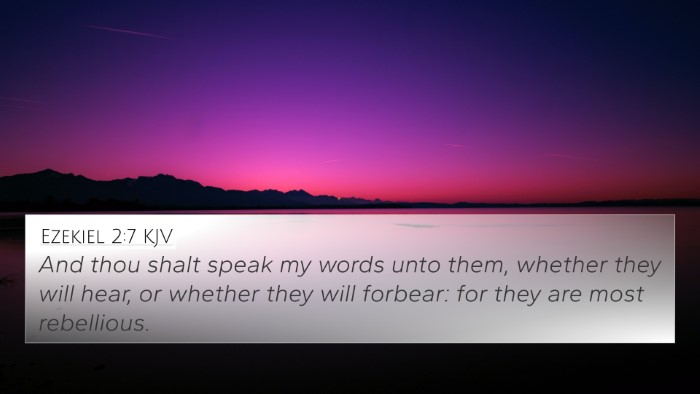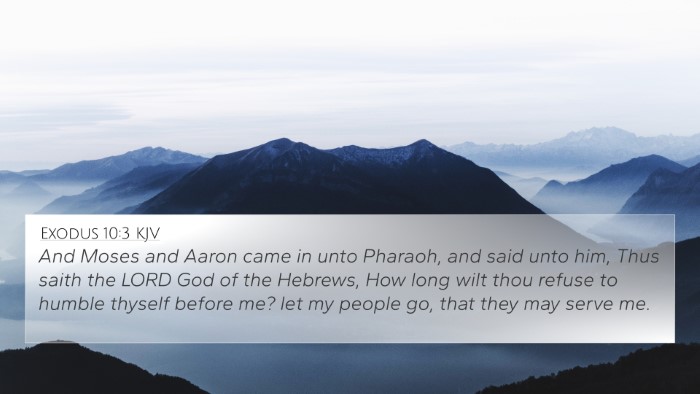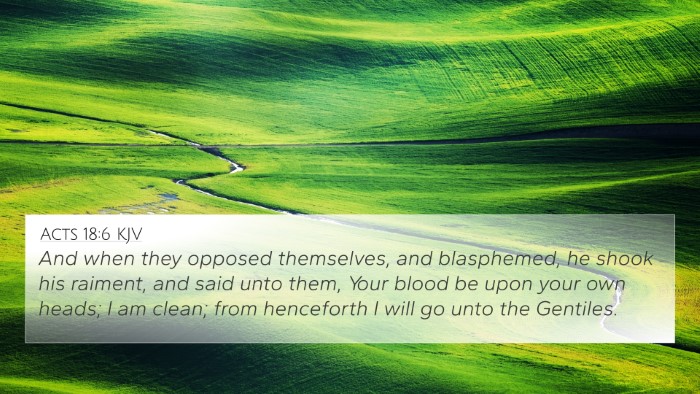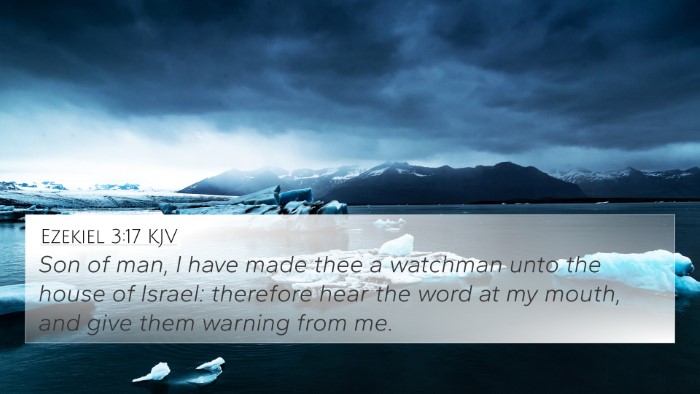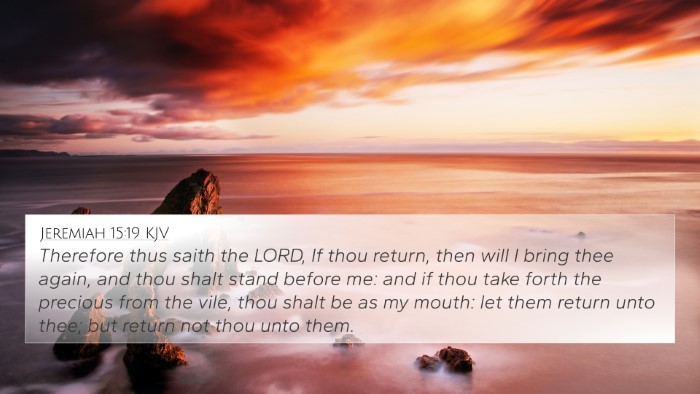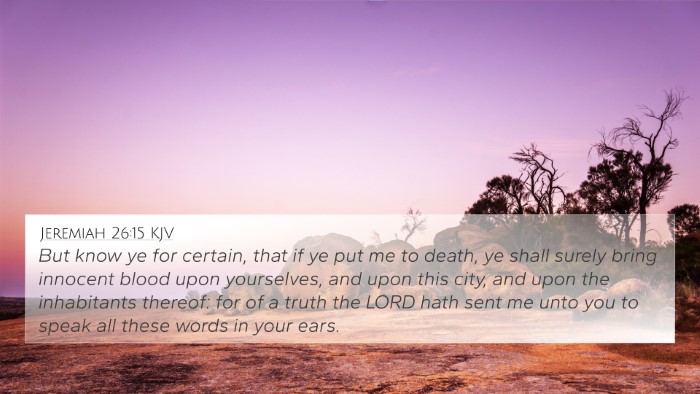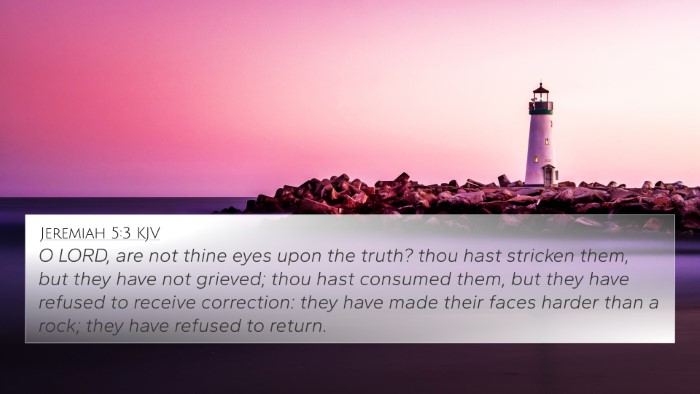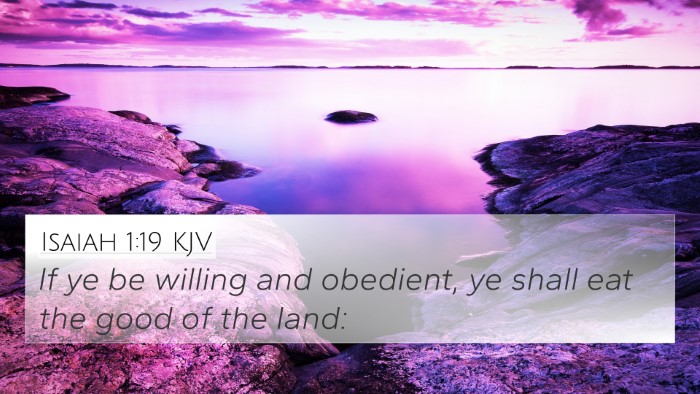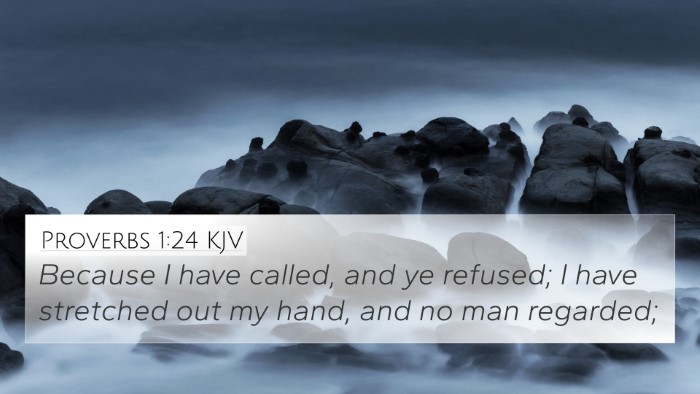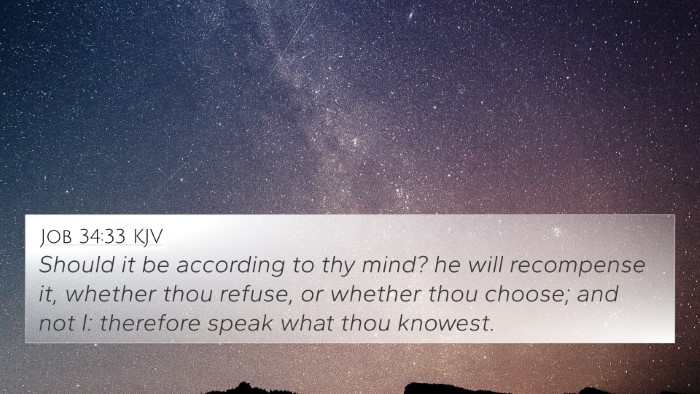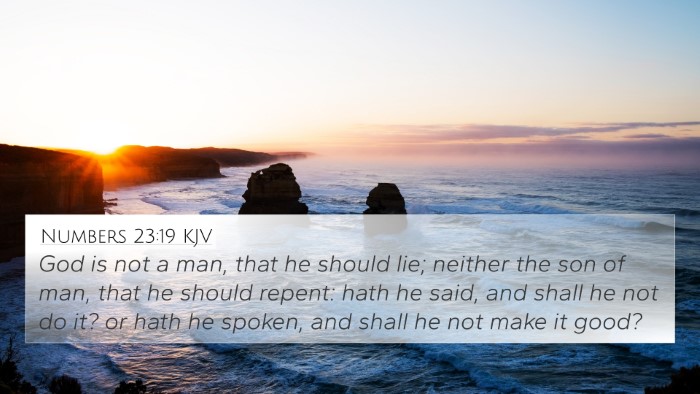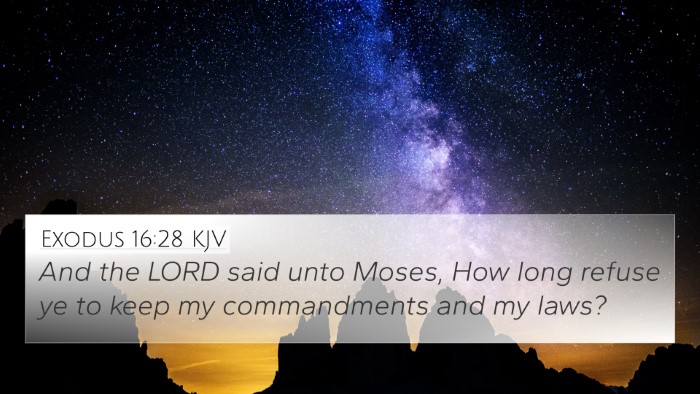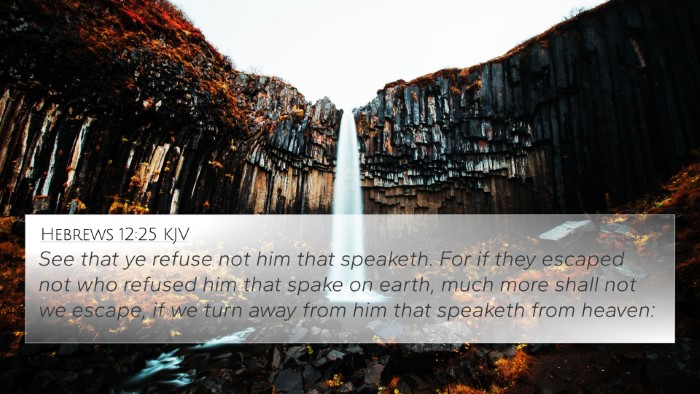Understanding Jeremiah 38:21
Jeremiah 38:21 states:
"But if you refuse to surrender, this is the word that the LORD has shown me:"
This verse provides significant insight into the broader narrative of Jeremiah's prophetic ministry, particularly in the context of the decision-making faced by King Zedekiah. Below is a detailed summary of the meaning of this verse, drawing from respected public domain commentaries.
Contextual Overview
In the preceding chapters, we find the prophet Jeremiah delivering prophecies regarding the impending destruction of Jerusalem and the fate of its leaders. The socio-political climate in Jerusalem was marked by fear and confusion, as the city was under siege. Jeremiah's steadfast proclamation of God's word placed him in opposing positions against the authorities who preferred to rely on military strength and alliances.
Key Insights from Matthew Henry
Matthew Henry emphasizes the prophetic nature of Jeremiah’s message. According to him, this verse heightens the contrast between obedience to God and the consequences of rebellion:
- Divine Direction: Henry points out that God’s word is not only a warning but also a directive for survival. It implies that surrendering to God's will is a path to preservation.
- Stark Choices: The verse illustrates the choice placed before Zedekiah—to obey or face the repercussions of his decisions, reflecting the broader human experience of free will and accountability.
Insights from Albert Barnes
Albert Barnes provides additional layers of meaning, interpreting this verse as a pivotal moment for Zedekiah:
- Prophetic Authority: Barnes notes that Jeremiah’s role as a prophet includes delivering messages that often disturb the status quo. His insistence on surrender highlights the futility of resisting divine will.
- Consequences of Refusal: According to Barnes, the refusal to heed the warning leads to destruction, not just for Zedekiah, but for the people of Jerusalem. This extends the message of personal accountability to collective consequence.
Insights from Adam Clarke
Adam Clarke brings attention to the concept of obedience in his commentary:
- Hearing God’s Voice: Clarke highlights that recognizing God’s voice is essential in moments of crisis. The failure to listen may not only affect the individual but also the larger community.
- Divine Justice: He further notes that God's justice must prevail, and that His warnings, when ignored, could lead to dire outcomes, emphasizing the urgency of Jeremiah’s message.
Cross-References and Thematic Connections
This verse opens a pathway to numerous thematic connections and cross-references found throughout Scripture:
- Isaiah 39:6-7: A warning about the consequences of disbelief and unfaithfulness.
- Daniel 2:37-38: Acknowledgment of God’s sovereignty over nations, relating to Jeremiah’s message of surrender.
- Matthew 10:28: A warning about the fear of man versus the fear of God, linking to the decision Zedekiah must face.
- Lamentations 3:40: Encouragement to examine one’s ways and return to God amid calamity.
- Hebrews 3:15: A reminder to heed God’s voice to avoid hardening one’s heart.
- Acts 3:19: A call for repentance—a parallel to God’s desire for His people to return from rebellion.
- Revelation 16:15: An emphasis on the need for vigilance in spiritual matters, analogous to the alertness Zedekiah needed to have towards Jeremiah’s warnings.
Conclusion
Jeremiah 38:21 serves as a critical reminder of the call to obedience to God's voice during times of adversity. The insights from Matthew Henry, Albert Barnes, and Adam Clarke converge on the understanding that surrender to God is not an act of defeat but a path to true preservation and salvation. As one navigates through life’s challenges, the importance of heeding prophetic words remains paramount, echoing through the ages in both the Old and New Testaments.



